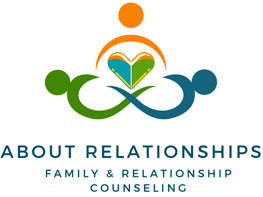Juneteenth: A Legacy & A Celebration
A question occurred to me while considering how my family and I would observe Juneteenth this year, what does Juneteenth mean to me? While it may appear to be a simple question, it has a layered answer. I was born and raised in a large East Coast city (shoutout to my Baltimore people!) but was reared with deep Southern influence. My father was raised in South Carolina and my maternal grandmother was raised in North Carolina. While I was growing up, I was afforded the opportunity to learn about my ancestors and I am fortunate to know some of the stories of how a few of my ancestors were freed from slavery in this country. Unfortunately for many African Americans, there is not the same access to information. To my knowledge, I do not have family ancestry connected to Texas, but the themes of Juneteenth and the long, arduous road that black people have had to take toward freedom and equity resonate for me deeply.
On January 1, 1863, President Abraham Lincoln issued the Emancipation Proclamation, declaring that all enslaved people in the Confederate states "shall be then, thenceforward, and forever free." However, the proclamation had little immediate effect on enslaved people in areas still under Confederate control. Despite the Emancipation Proclamation, the Civil War continued, and many enslaved people in the Confederate states remained in bondage until Union forces advanced and enforced emancipation.
On June 19, 1865, Major General Gordon Granger arrived in Galveston, Texas, with Union troops. He issued General Order No. 3, which proclaimed the freedom of over 250,000 enslaved people in Texas. This was one of the last Confederate holdouts where slavery persisted despite earlier legal decrees. The order said:
"The people of Texas are informed that, in accordance with a proclamation from the Executive of the United States, all slaves are free."
The news of freedom came more than two years after the Emancipation Proclamation and months after the end of the Civil War in April 1865. The delay was partly due to the minimal presence of Union troops in Texas to enforce the proclamation and the resistance of some slaveholders who withheld the information from those enslaved.
Can you imagine being bound by the most horrific infrastructure ever created in this country? A system that separated mothers and fathers from their children, used sexual, emotional, and physical violence to destroy and control millions, and to learn that you have been free for more than two years. Would there be joy? Would there be anger? Would there be grief?
Juneteenth reflects the intersection between the black experience and being citizens of the United States of America. Juneteenth is recognized as a celebration of freedom and the heritage of black people in this country. For me and many others, it also represents resilience and the struggle for equity and justice historically and currently.
Is it fair that over 250,000 women, men and children waited over two years to have that birthright of freedom confirmed? No, I don’t believe that it is. However, for myself and many other black people inequities are familiar, yet we persist and overcome. I am reminded of many of the lessons I learned from my Southern grandmothers. They would admonish me to work hard, in fact twice as hard because that would be the requirement to overcome systems of racism and sexism. To prioritize my joy through celebrations, travel, and rest, because I earned it and deserved it, even if society tried to convince me otherwise. Juneteenth is a celebration, despite inequity and racist systems that persist. It is an ode to the unyielding spirits of our ancestors and a call to action to celebrate our collective joy, freedom, and connection while we can.
Juneteenth continues to evolve, symbolizing hope, progress, and the enduring spirit of a people who have overcome profound adversity. While Juneteenth is a celebration of freedom, it is also a call for systemic change in this country. It is a reminder of the work that remains for us towards the pursuit of true equality and justice for all. A time to honor the ancestors and revel in the joy of this day, I am also reminded of the responsibility I carry to continue their legacy.
We must collectively strive to create a world where the promise of freedom and equality is fully realized. Where the dreams of our ancestors are not just remembered but brought to life through our actions and our commitment to justice.
Juneteenth is a tapestry of joy and gratitude, a day that honors the past, embraces the present, and inspires hope for the future. It is a time to recognize the ancestors whose sacrifices paved the way for freedom and to rejoice in the progress that continues to unfold. The wisdom and heritage of Juneteenth can be useful for us all.
Here are a few ways to integrate these lessons in your therapeutic journeys:
Practice mindfulness during celebrations and daily life. Focus on the sights, sounds, and emotions of the moment. Allow yourself to fully experience and enjoy the present, recognizing it as a gift.
Engage in activities that affirm and celebrate your cultural identity. Whether through art, music, dance, or storytelling, find ways to express and embrace your heritage. This can bolster self-esteem and a sense of belonging.
Share your story and listen to the stories of others. This can be through therapy groups, community gatherings, or personal conversations. Recognize the value of your experiences and the healing power of being heard and understood.
Reflect on how you can contribute to justice and equity in your community. Consider volunteering, advocating for policy changes, or supporting organizations that align with these values. Engaging in these activities can provide a sense of purpose and fulfillment.
